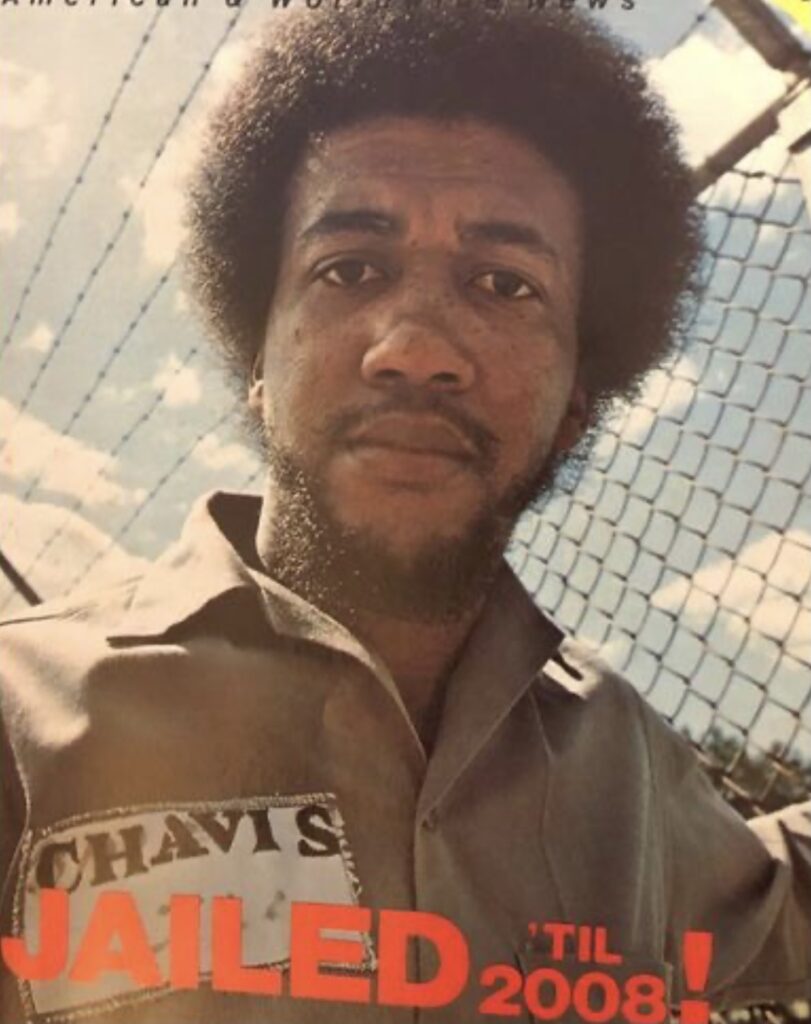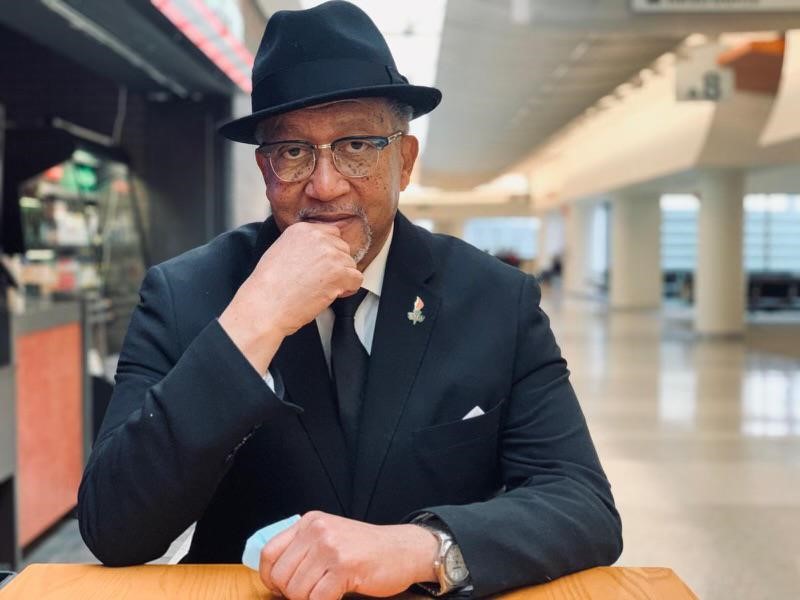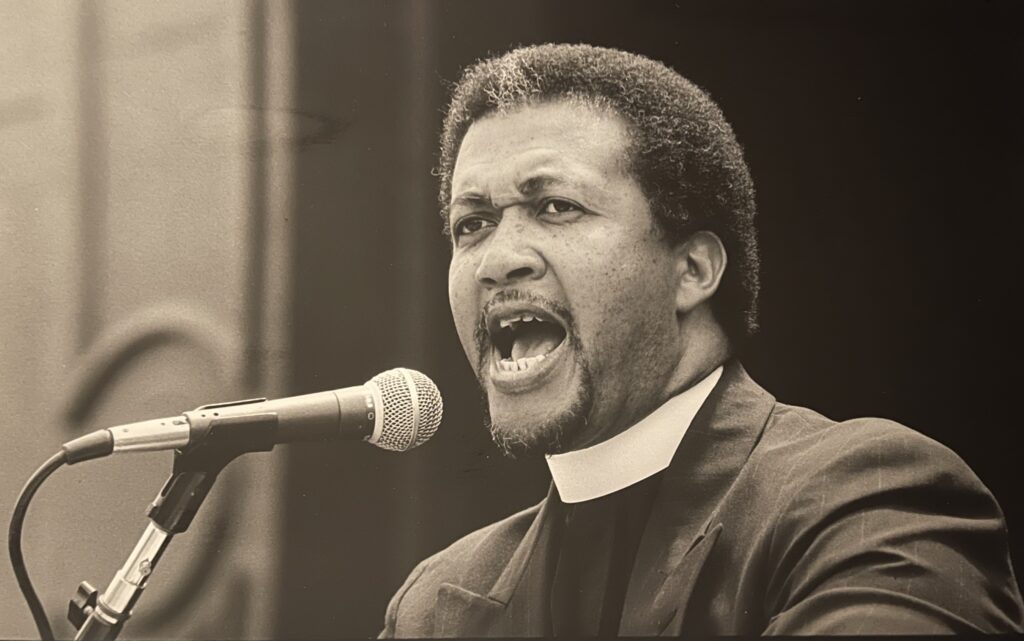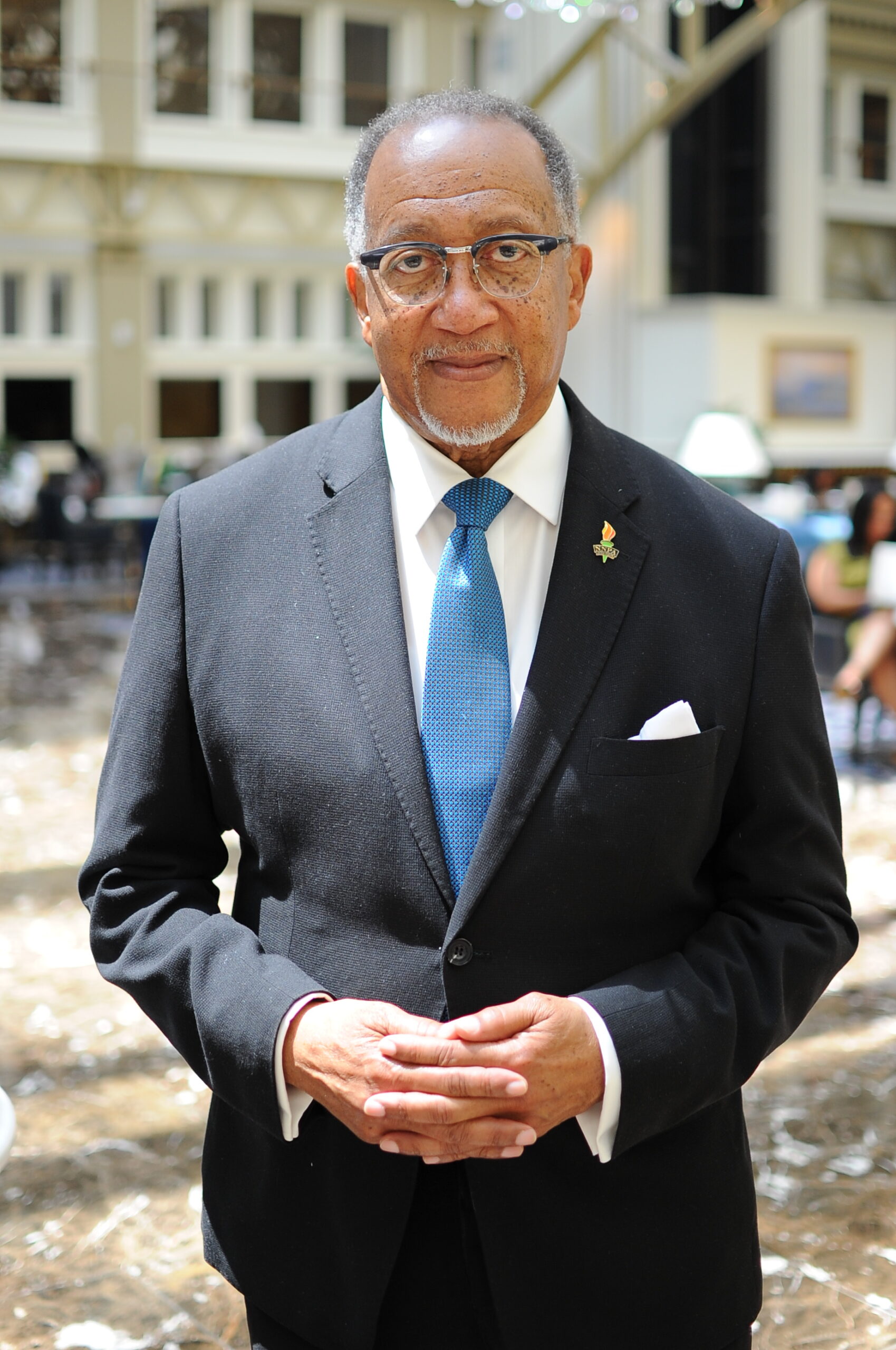In life, sometimes, people ask God what they should do and sometimes God tells people what they should do. Dr. Benjamin Chavis, Jr. seems like one of those people whom God called him to serve his people. From early childhood, Chavis has been the tip of the spear for Black people.
Chavis was blessed to be born into a family that has a legacy of fighting for freedom. Born January 22, 1948, in Oxford, North Carolina, Benjamin and the Chavis family were landowners who were freedom fighters. Chavis’s great, great, great grandfather, The Reverend John Chavis, fought in the Revolutionary War against the British.
Chavis was exposed to the idea of fighting for equality at a very early age.
“I would sit at the breakfast table and listen to my elders talk about the world we live in, and I learned about racism very early,” Chavis said. “My father was a brick mason and showed me how to make a living. His own father also discussed race at the breakfast table.”

Those conversations motivated Chavis to become a difference-maker when it came to advancing himself, and the Black race. As a child, Chavis went to a segregated school where he never saw a book with both covers, so he fought to become the first Black child to be issued a library card at a segregated library.
From there, Chavis was present at almost every pinnacle of Black history. From being a member of the Southern Christian Leadership Conference (SCLC), NAACP, and the Urban League, to walking with Dr. Martin Luther King, Jr.
“When I was growing up, it was expected that you belonged to all the organizations that fought racism,” Chavis continued. “Today, most people belong to only one organization or none at all.”
In 1971, at the age of 23, Chavis rose to international prominence as the leader of the Wilmington Ten in NC, civil rights activists who were unjustly convicted of committing arson. As the oldest of the ten, Chavis received the longest sentence of 34 years in a North Carolina prison.
The Wilmington Ten convictions and sentences were appealed and overturned, and in 1980 all ten were freed by the US 4th Circuit Court of Appeals due to prosecutorial misconduct. Chavis returned to graduate school and the field of civil rights, and he became the vice president of the National Council of Churches in 1988 in New York City.
The national board of directors of the NAACP elected Dr. Chavis in 1993 as the executive director and CEO of America’s oldest civil rights organization.
Chavis later served in 1995 as the National Director of the Million Man March and the founder and CEO of the National African American Leadership Summit (NAALS). Since 2001, Chavis has been CEO and Co-Chairman of the Hip-Hop Summit Action Network, in New York City, which he co-founded with hip-hop mogul Russell Simmons.
On June 24, 2014, Chavis became the president and CEO of the National Newspaper Publishers Association, an African-American organization that focuses on supporting and advocating for publishers of the nation’s more than 230 Black newspapers.

As a longstanding advocate of entrepreneurial activities for youth and minorities, Chavis has assisted, consulted, and headed several commercial projects ranging from franchising to film production and publishing.
He has had an impact on popular music as well. While serving as a mentor to Sister Souljah, Kevin Powell, Little Rob, Ras Baraka, and other hip-hop activists, Chavis met Russell Simmons and Lyor Cohen in 1986 at Def Jam Records. As head of the NAACP in 1993, he worked with Run DMC to mobilize youth voters. Hip-hop’s premier video director, Hype Williams, cast Chavis in the pivotal role as the “Rev. Saviour” in the 1998 hip-hop classic movie Belly, which starred superstar hip-hop artists Nas, Method Man, and DMX.
Chavis performed the Intro and Outro to Jim Jones and the Diplomat’s 2004 hip-hop album, On My Way to Church. In 2005, Chavis was the spoken word artist featured in Cassidy’s latest platinum-selling album I’m a Hustla.
When Chavis helped organize both the Million Man March (1995) and Million Family March (2000), Russell Simmons worked with him to mobilize hip-hop leaders to support the marches. Ultimately, the two men realized they had a similar vision for this generation of hip-hop youth, and to that end, they created the first national Hip-Hop Summit in New York City, from which grew the Hip-Hop Summit Action Network (HSAN).
Today, Chavis is scheduled to launch his new radio program that focuses on Black people doing positive things. The program, called “The Good News,” is a 60-second commentary on things happening in popular culture.

“I came up with the name, ‘The Good News,’ because all we see and read about lately is bad news,” Chavis said. “I wanted to create something that would uplift and inspire our people to be better and do better.”
Chavis is launching his show at the perfect time. The 2024 presidential election will be critical for Blacks if they expect to make any political gains over the next four years. “The Good News” can be heard all over the country impacting local listeners the most.
“We need to develop our communities. You know, a lot of times city planning commissions plan things out three and five years in advance and we don’t even know about it,” Chavis continued. “If you aren’t at the meeting, then you are on the menu. We do need to do a better job getting Blacks into the right positions to have an impact.”
- Chavis wants Blacks to be deliberate in their intentions and to be more verbal about their goals. He wants Blacks to get back to joining organizations and working to advance the businesses and culture of Black people.
- He and his team are working to become global advocates for environmental justice and climate change. He wants Blacks to take on international agendas if they expect to compete for success in the next ten years.
- Chavis wants Blacks to pay more attention to trading with countries like Africa and the Caribbean, so the Black agenda is seen as a global one.
- He wants Blacks to learn a different language, so they can move around the world more easily.
“Brazil has the largest African community in our hemisphere, but there is very little communication between American Blacks and them because of the language barrier. That needs to change,” Chavis said.
Men like Chavis, who have tirelessly worked for the advancement and better treatment of Blacks are not created anymore. His desire is unmatched, and his intellect is royal. Black people all over the country need to tune in and listen to this living legend.


